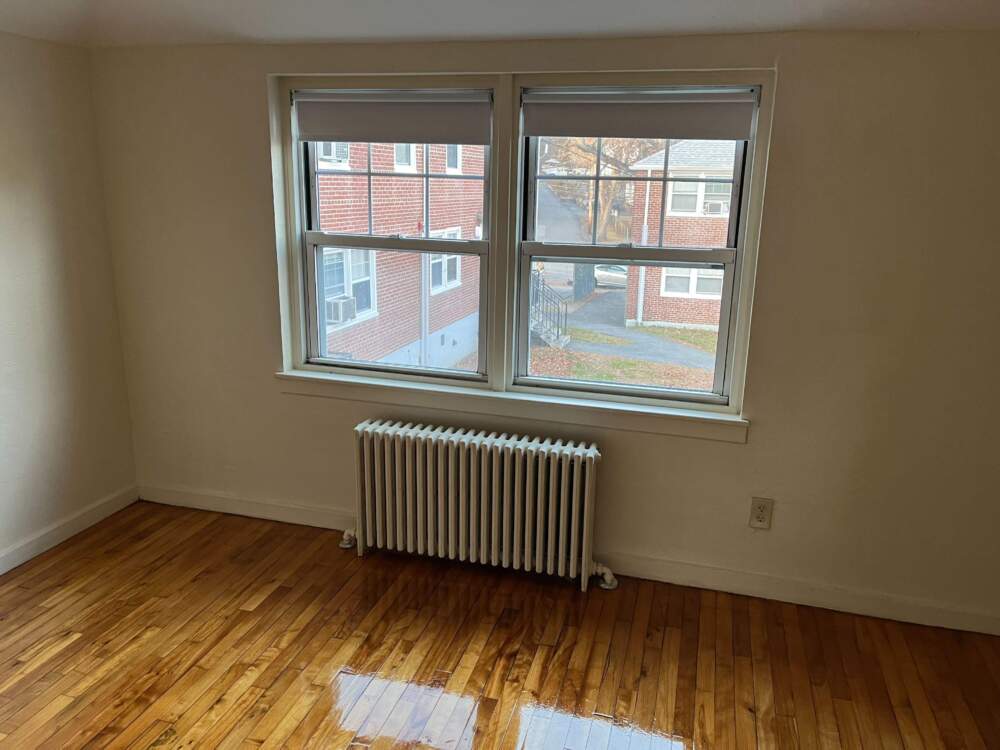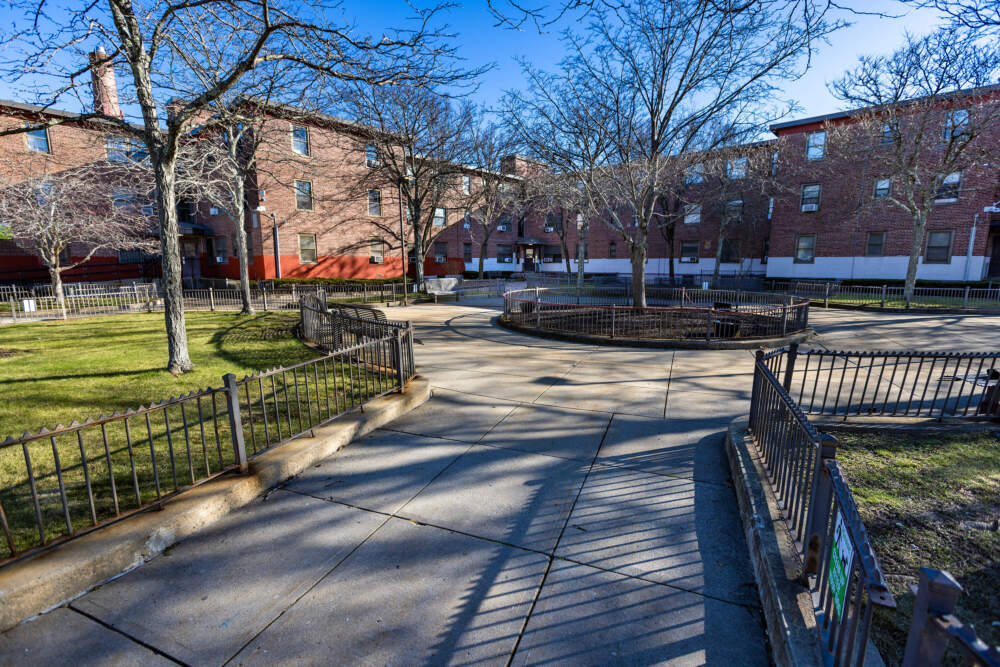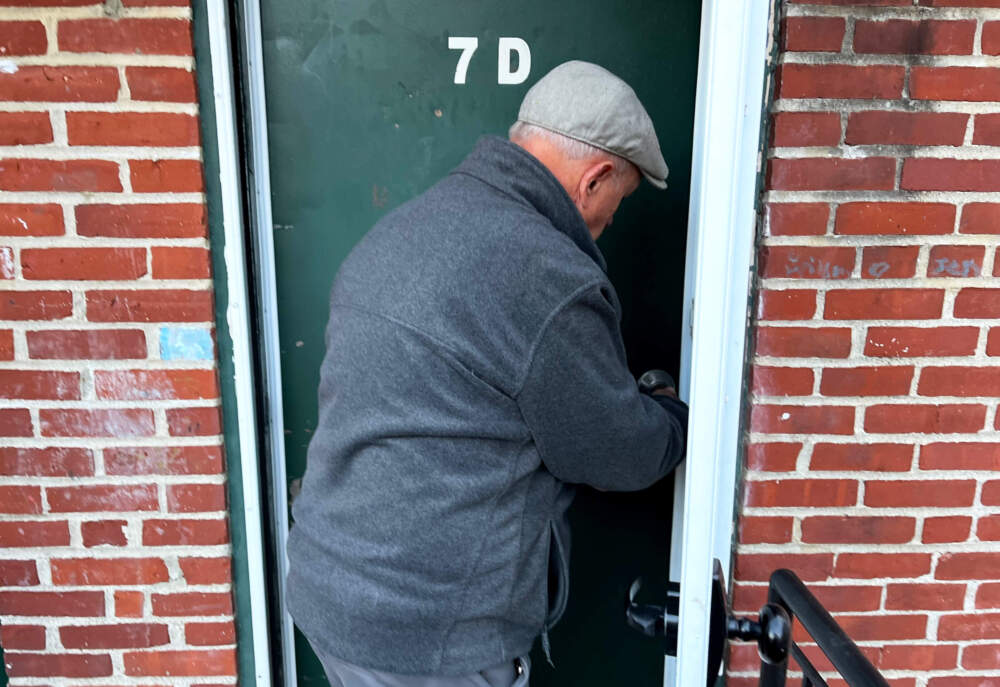Advertisement
Mass. fined local housing authorities $4 million for leaving units empty. But most were forgiven, or forgotten
Resume
Massachusetts has fined almost every local housing authority in the state for keeping subsidized apartments empty without a good reason.
The state levied $4.1 million in fines against 212 agencies from 2019 to 2022, according to public records obtained by WBUR. Eight were fined more than $100,000; Boston Housing Authority alone racked up more than $600,000 in fees for leaving units vacant for months or years without the state’s permission.
But WBUR found the penalties were largely meaningless for years because the state failed to enforce them. That meant the state wasn’t taking advantage of one of its main tools to push local housing agencies to fill empty units, even as the state faces a dearth of affordable housing.
The state acknowledged that more than three-quarters of the fines over the last four years were either forgiven or never collected. Some housing agencies, like Boston, said they weren't aware of all the fines. Others weren’t sure how much, if anything, they paid.
Massachusetts housing officials say the lack of enforcement has had serious consequences, reducing access to affordable units in the middle of a worsening housing shortage.
“I call it bad public policy,” said Doug Howgate, president at the Massachusetts Taxpayers Foundation, a Boston think tank. “You need to do a better job of enforcing it.”
Meanwhile, many subsidized apartments have been sitting empty. A WBUR and ProPublica investigation this fall found nearly 2,300 of 41,500 state subsidized units were vacant, even as more than 184,000 people languished on the waitlist for public housing.
State and local officials blamed many of the vacancies on problems with the state’s central waitlist, lack of money for vital staff and repairs, and decisions by some local housing agencies to use apartments for offices and storage.
Gov. Maura Healey's administration has already hired a vendor to help local housing agencies screen tenants, proposed a bond measure with $1.6 billion to repair and modernize public housing and launched a 90-day push to fill vacancies after the WBUR report.
But Housing Secretary Ed Augustus said the failure to enforce the fines for so long has likely made the situation worse.
“It's probably one of multiple factors that contributed to the larger number of vacancies,” said Augustus, who took office in June.

Under state rules, local housing agencies are supposed to rent out apartments within 60 days of being vacated or seek a waiver explaining why they can’t – whether it’s because agencies can’t find a new tenant or a unit needs major repairs. The state approves 92% of waivers requests, according to a WBUR analysis of state data.
If agencies leave units empty for months without a waiver, the state has threatened to charge them for each day a unit remains empty. The fines currently range from $3 to $11 per day.
"We want to make sure that we know when units are offline, they're offline for good reason," said Augustus. "So it's an accountability mechanism."
No agency racked up more fines for empty units in the past four years than Boston, the biggest local housing authority in the state with more than 2,000 state-funded units.
In July, for instance, the Boston Housing Authority had eight empty units without waivers in a complex called Archdale Village, a cluster of three-story brick buildings in Roslindale meant to serve low-income families. One of the apartments had been empty for more than two years without a waiver.
Boston Housing declined requests for an interview. But in an email, spokesman Brian Jordan said those apartments were unleased because the Archdale building needs a new roof, something the agency is now working on.

Jordan said the city inadvertently failed to ask the state for permission to leave units vacant over the past few years, even when it thought it had good reasons to do so.
"Obviously we regret these past paperwork errors," Jordan wrote.
State data show the city was fined every quarter from 2019 to 2022 (except for the first half of 2022, when the state suspended fines because of the pandemic).
Jordan said the housing agency wasn’t aware of the mounting fines during the pandemic. He said Boston Housing learned the state temporarily stopped fining agencies in early 2020 because of the pandemic, but didn’t realize the state resumed assessing penalties later that year.
It’s not clear how much the city actually paid in fines from 2019 to 2022.
The lack of enforcement is a problem all over Massachusetts.
Overall, the state estimated local agencies forfeited less than $1 million of the more than $4 million fines assessed from 2019 to 2022.
A half million in fines were forgiven. But the state said millions more went uncollected because a flaw in their enforcement system: They relied mainly on local housing agencies to voluntarily forfeit the money.
For years, local agencies were expected to look up how much they owed in fines and deduct that from their annual funding requests. Often, they didn’t do that. So state taxpayers were continuing to fund apartments that were sitting empty.
"There was an antiquated system," Augustus said. "So fines weren't actually being, kind of, deducted from their subsidies."
But a spokesman for the Executive Office of Housing and Livable Communities said the agency recently altered its computer systems to automatically collect the fines – deducting the money from their annual subsidies starting for fiscal years ending June 30, 2023.
The spokesman, Kevin Connor, said any money collected will go back into the pool of funding available to the 230 authorities with state public housing in future years.
But the state says it has no plans to go after the millions of dollars in fees that were never collected in the past.
Augustus said the goal isn’t to collect a certain amount of fines.
“The goal is to fix problems that are keeping units vacant,” he said.
Still, some local housing agencies were alarmed to find out how much they had accrued in fines.
Wellesley Housing Authority Executive Director Jacqueline Sullivan wrote to the state in February that she worried the penalties would "bankrupt" the agency. State records show the housing agency was assessed more than $300,000 in fines from 2019 to 2022 (mostly from before Sullivan took over the agency early last year).
Sullivan told the state in an email obtained by WBUR under the state public records law that the agency “can’t pay these fees, or we will have no money left in our reserves.”
A state housing official tried to calm her fears, replying: "Please try not to worry, it's not our intention to bankrupt" the agency.
Sullivan told WBUR she is still trying to figure out how much the agency actually paid in fines over the last four years, if anything. But it has mostly stopped accruing new fines.
Some other housing directors were not happy about the state’s new plans to enforce the fines.
“You’re taking resources from agencies that need them to ensure a rapid turnaround. I'm not sure that that's the best motivation,” said Waltham housing director John Gollinger. “It’s not the way I would go.”

State data show Waltham was fined nearly $110,000 from 2019 to 2022 (though Gollinger thinks some of the fines were errors). The housing authority director said he didn’t think Waltham ever paid any penalties, but wasn’t certain.
“They may have deducted it," Gollinger said. "I don't know.”
The state provided WBUR with detailed data on the assessments for each agency, but said it did not have a similar breakdown of how much each agency actually paid.
Regardless, several housing agencies that were fined said the violations were unintentional.
Gardner Housing Authority Executive Director Krishonna Murray said the waiver requests take time to file, something that becomes harder when agencies are short-staffed or dealing with a surge of vacancies due to major renovations.
She also said her agency did not realize it needed to submit waivers for vacancies related to a large electrical project, because it had already given the state separate paperwork about the work.
Ultimately, the state forgave most of the $74,000 in fines Gardner faced from 2019 to 2022.
Murray says no one likes paying fines. But she understood the need to make sure agencies request waivers for empty units.
“When you have a unit sitting without a reason,” she said, “there’s cause for concern.”
This segment aired on December 28, 2023.
